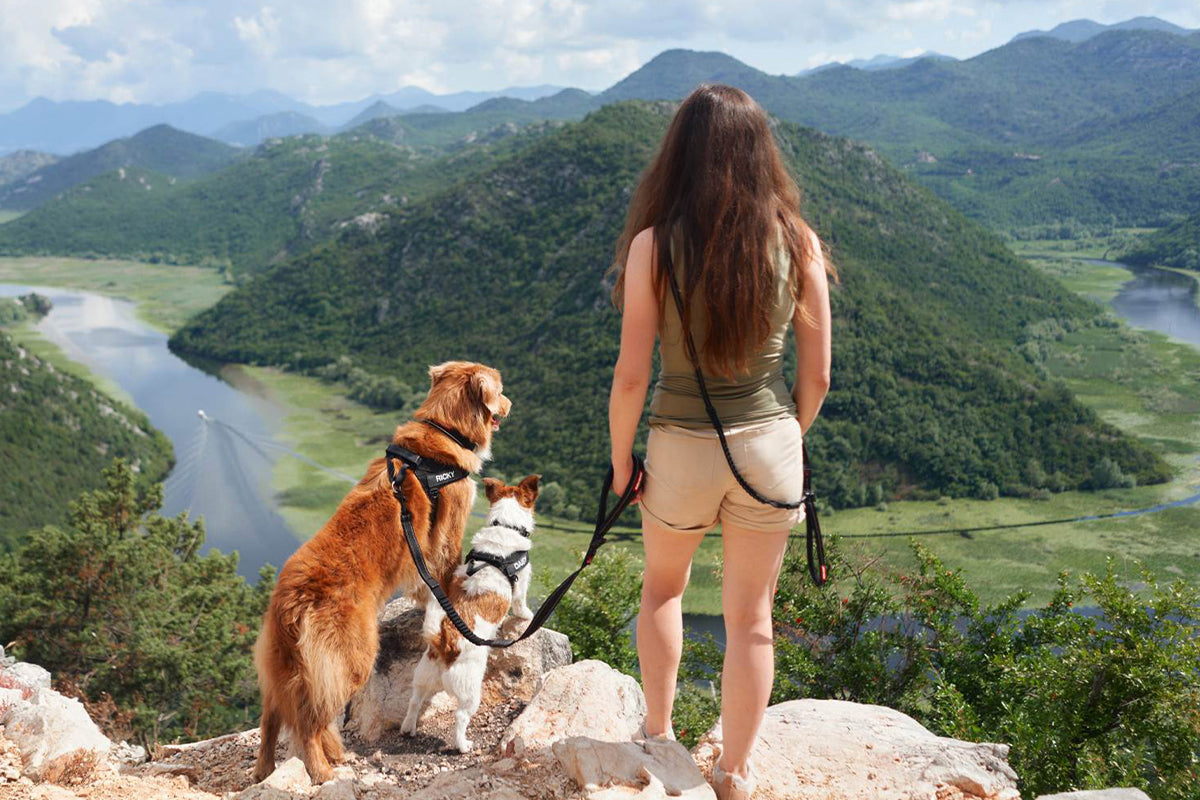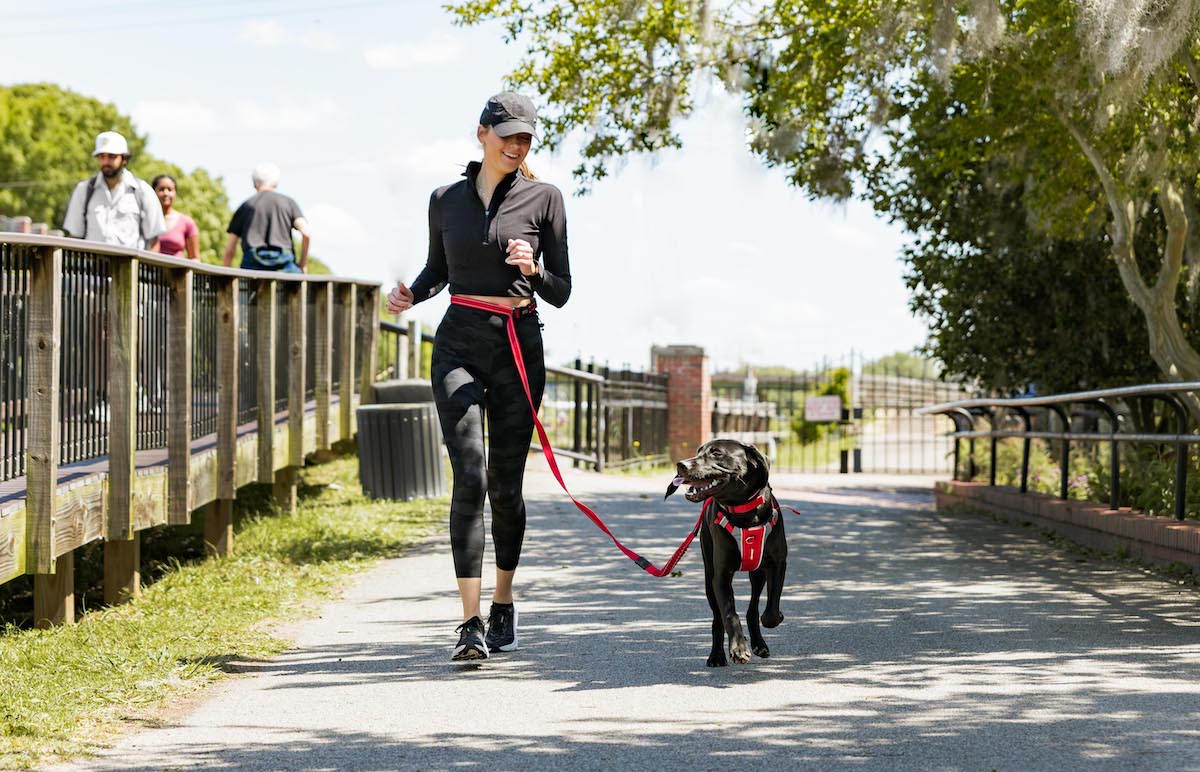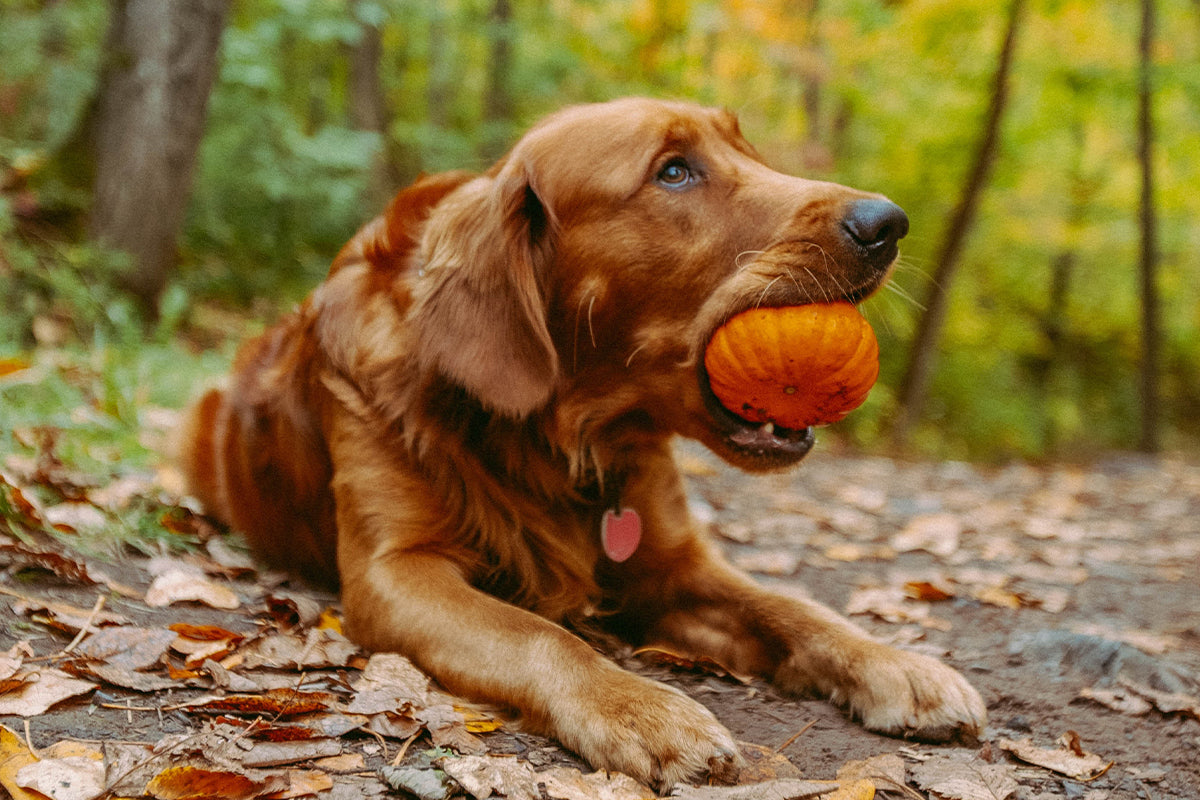
Capturing Adventures With Anna, Ricky, & Daisy
Meet Anna, a dedicated pet photographer from Montenegro, who shares an inseparable bond with her two dogs, Ricky and Daisy. We find her story truly inspiring, as she has transformed her passion for pets into a fulfilling and successful profession, cherishing the company of her beloved dogs every step of the way.

Q. Do you mainly take photos of your dogs or other people’s dogs as well? How did you become interested in pet photography?
A. I started doing photography when I was a child. My first models were the family pets, whom I captured in numerous photos while learning about photography and gaining practical experience. Later, I got my own dogs: Daisy - Jack Russell Terrier, and a few years later, Ricky - Nova Scotia Duck Tolling Retriever.
I dedicated a lot of time to them and constantly took photos, while also exploring stock photo agencies and working not only with clients but also with stock agencies. We traveled extensively with the dogs, and I consistently photographed them. In parallel, I photographed other people's animals in outdoor settings and in the studio.
In 2020, I wanted to share my experience with colleagues and create a space for animal photographers. We opened a pet photography studio equipped with everything a photographer, particularly one who specializes in capturing animals, might need. In the studio, I conducted photoshoots for clients with their pets and for pet-related products. Additionally, we rented the studio to other photographers specializing in dog, cat, and other animal photography.
In 2022, due to the war, we had to close the studio and relocate to another country.
Now we live in a very small country with beautiful nature, and my main models are Ricky and Daisy, along with my new friends and their pets. I also continue to work with photo stocks and brands. I strive not only to create beautiful portraits or capture interesting moments but also to plan the shooting concept, story, and find unique locations.

Q. Can you provide examples of any special techniques or creative approaches you use to capture unique and memorable pet photographs?
A. Often, the inspiration for the images comes from life itself or from the dogs themselves. There are many talented and capable dogs out there. If a dog loves water, then a series can be created around water, at the sea or a waterfall. If a dog enjoys digging holes, jumping, running, or simply sitting calmly and observing, all of these traits can and should be utilized in my work. The pets themselves serve as a source of inspiration and ideas.
I often incorporate elements of the surrounding environment. Including interesting elements from the surroundings can add context and mood to a photograph. For example, capturing a dog against a beautiful landscape, in a blooming field, or near unique architectural elements.
Working with the owner is important. Establishing a connection and collaboration with the dog's owner is crucial. I ask them to help in attracting the dog's attention and managing their behaviour during the shoot. The more comfortable the dog feels, the easier it is to capture unique shots.

Q. Can you share some techniques or tools you use to capture the attention and engagement of pets in photographs?
A. Here are some techniques and tools I use to capture the attention of pets in photographs:
Treats: Treats are often a great way to grab the attention of dogs or other animals. You can use them as a stimulus to make the animal look in the desired direction or strike an interesting pose. Be ready to reward the animal with a treat after a successful shot.
Toys: Toys that the pet enjoys can be a fantastic tool for capturing their attention. You can ask the owner to use a toy or toss it in the desired direction to make the pet look at the right moment.
Sounds: Making sounds or using noise-making tools such as a whistle or clicker can attract the animal's attention. For instance, dogs often respond to the sound of a squeaky toy or a tongue click.
Gentle sounds or rustling: Employing soft sounds, rustling packaging, or a gentle crinkle can help draw the animal's gaze. This technique can contribute to creating more lively and captivating photographs.
Collaboration with the owner: Establishing a connection and collaboration with the pet's owner is vital. Ask them to assist in grabbing the animal's attention and managing their behavior during the shoot. The more comfortable the pet feels, the easier it will be to capture unique shots.
Gradual conditioning: If you plan to work with an animal over an extended period, it can be beneficial to train them to respond to specific sounds, gestures, or commands. This way, you can easily direct their attention and actions during the shoot.
Understanding breed characteristics: Different dog breeds have their own unique characteristics and preferences. Some breeds are more active and playful, while others are calmer and inclined to relaxed poses. Study the specific traits of the breed and try to interact with the animal accordingly, considering their individuality.
However, remember that every animal is unique, and some methods may not work in every situation. It's important to be patient, observant, and ready to adapt your approach to create a comfortable and friendly atmosphere for the photo session.

Q. Do you have any tips for people to take photos of their own pets?
A. Get down to their level: Instead of always shooting from a standing position, try getting down to your pet's eye level. This will create a more engaging perspective in the photos.
Use natural light: Whenever possible, take photos of your pet in natural light. Choose well-lit areas indoors near windows or go outside during the golden hour (early morning or late afternoon) for beautiful natural lighting. Take your camera and pet with you on your trip.
Capture their personality: Focus on capturing your pet's unique personality and expressions. Try to photograph them during their playful or relaxed moments to showcase their true nature. Patience is key, as pets can be unpredictable.
Experiment with angles and composition: Be creative with your composition and experiment with different angles. Try close-up shots to capture their expressive eyes or zoom out for wider shots that showcase their environment.
Use treats or toys: Treats or toys can be helpful tools to grab your pet's attention and direct their gaze. Hold a treat near the camera or use a toy to encourage them to look in a certain direction.
Be mindful of the background: Pay attention to the background of your photos. Choose clean, uncluttered backgrounds that won't distract from your pet. This will help keep the focus on them and create visually appealing images.
Patience and practice: Taking great pet photos often requires patience and practice. Be prepared to take multiple shots to capture the perfect moment. Take your time and enjoy the process of photographing your furry friend.
Remember, the most important thing is to have fun and enjoy the time spent with your pet while capturing their precious moments.

NOW GO AND PLAY!


